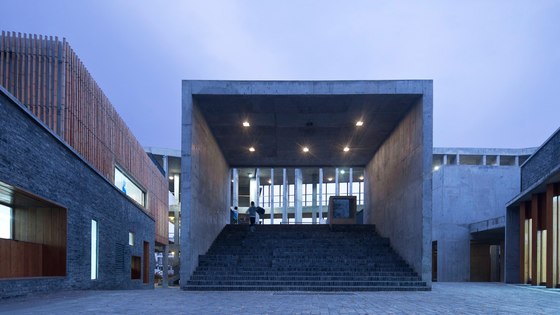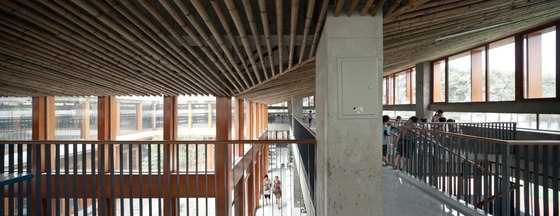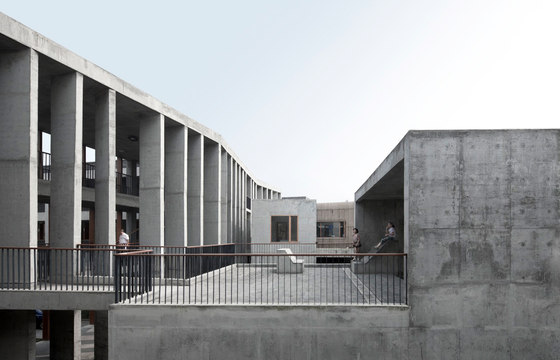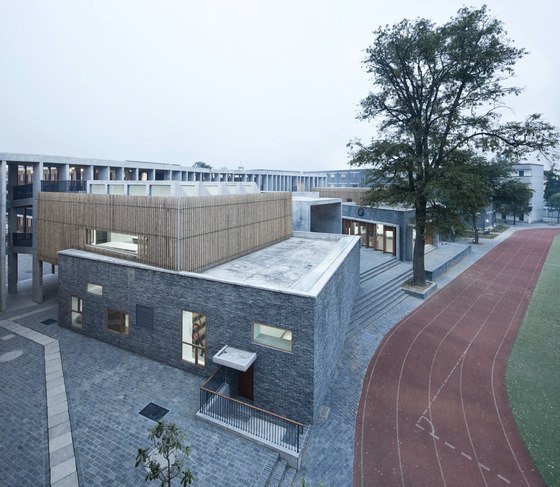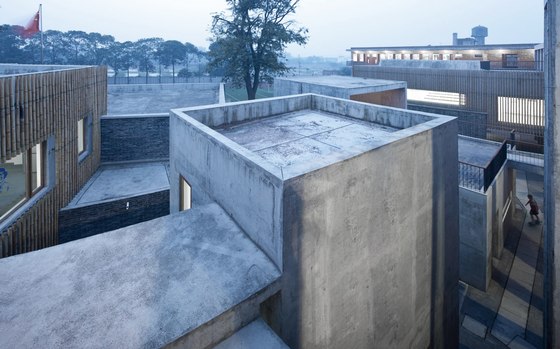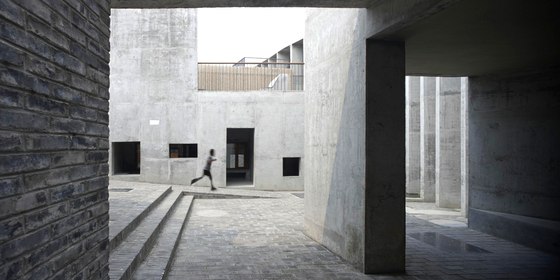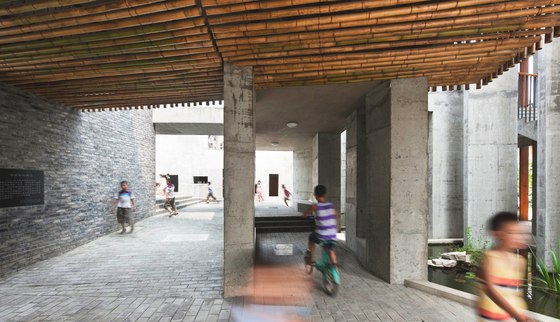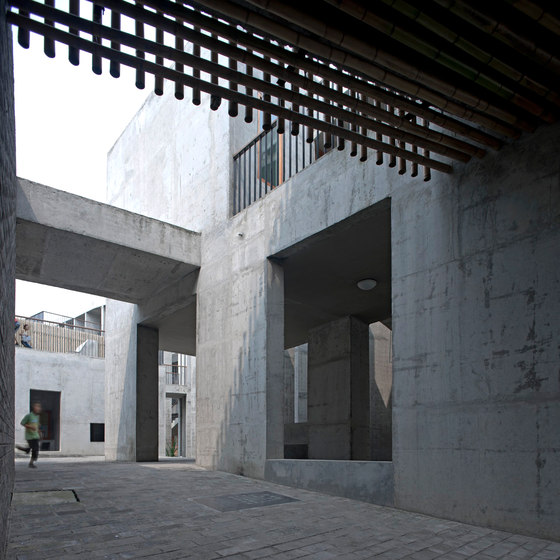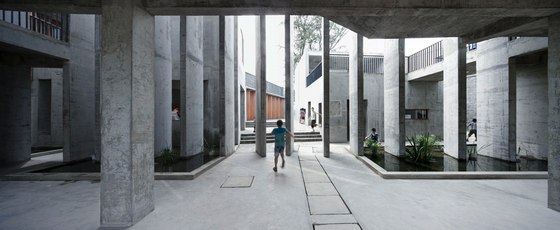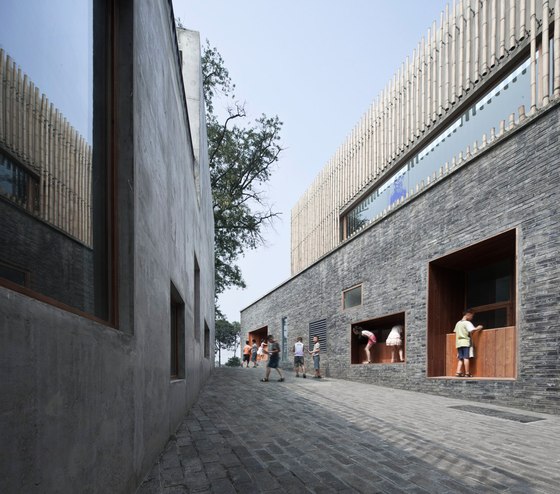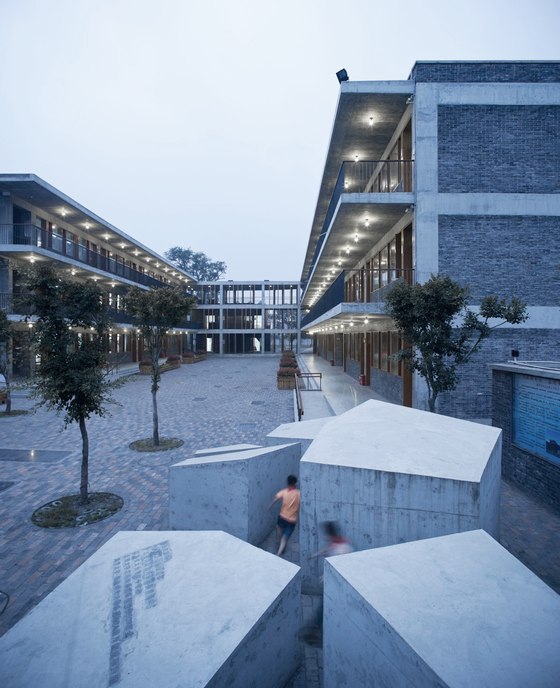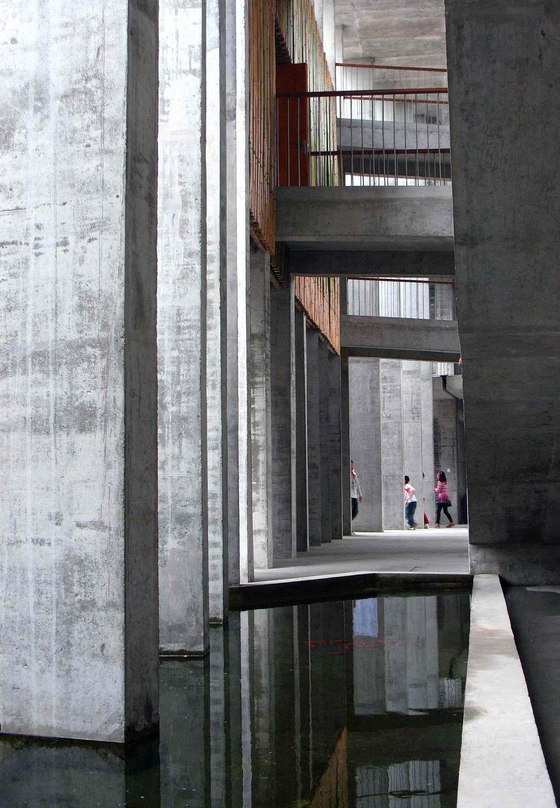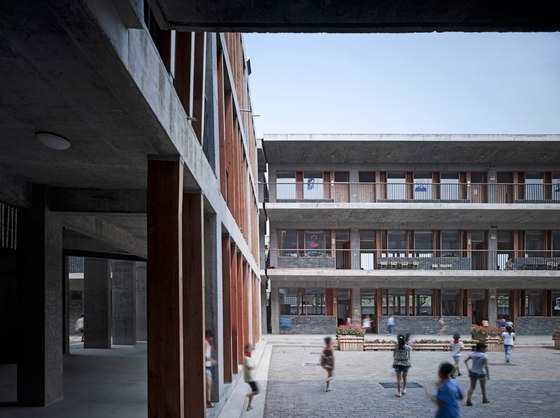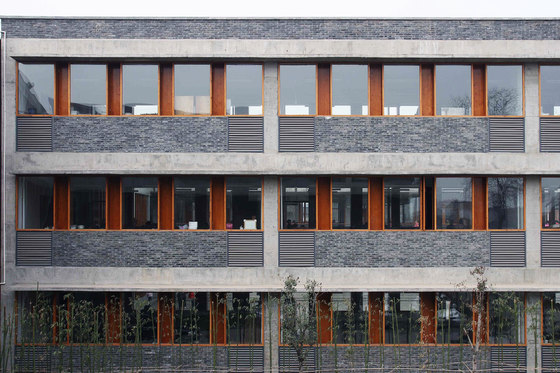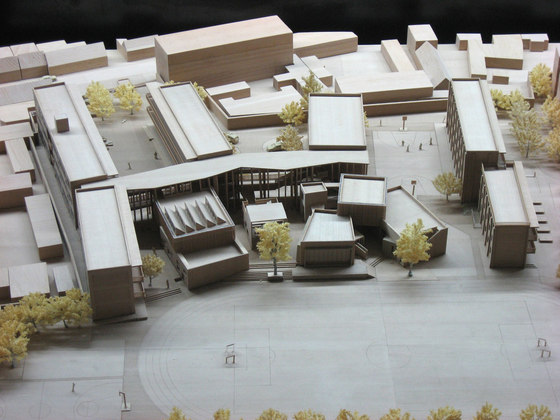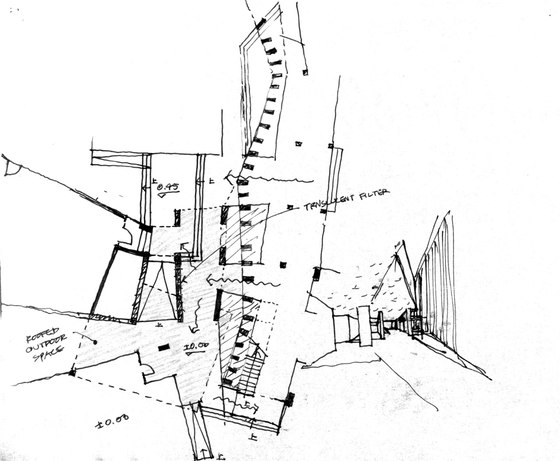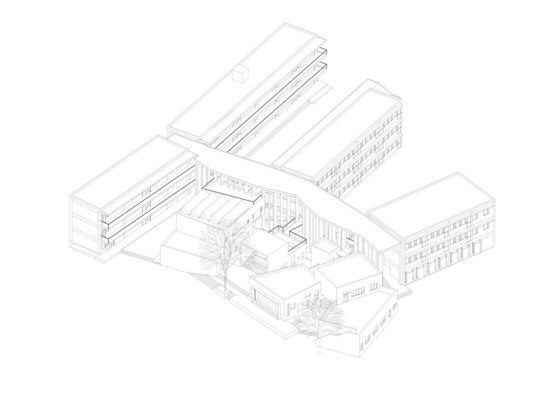The old XiaoQuan Elementary School was severely damaged during the catastrophic 5.12 Sichuan earthquake in 2008 and was demolished shortly after. It was built with funding from donations of several sponsors, which includes the Red Cross of Jiangsu, a Buddhism temple foundation from Canton, MBA Class from Beijing University and Tsinghua University amongst others. We were selected by sponsors as the design team, instead of being hired by the local government. Our work started from a site visit after the earthquake and followedd by ongoing communication with people from the Elementary school to gauge their needs and concerns.The program consists of main classroom buildings, classrooms for various activities, teacher’s office, student dormitory buildings, and a dining hall. The new school will host more than 900 students.
The main design idea is to conceive a school as a cluster of small buildings to create a small city, giving diversified space so as to enrich the children's experience and activities. We wanted to respect the continuity of life and the memory of Xiaoquan town before the disaster, so we defined several typologies of urban space in the new school: streets, plazas, alleys, courtyards etc, analogous to XiaoQuan's original urban space in scale and fabric, so as to provoke a familiar feeling of daily life. This approach avoided the rebuilding process which turns into a completely new but brutal, overwritten style without caring about the past, which is typical in earthquake areas. These places are intended to encourage diversified and spontaneous activities for children. Varying-scales, playful corners and labyrinth spaces as passages and playgrounds are created to provoke children’s curiosity and imagination.
The client and elementary school both agreed with the concept. They all feel the necessity to go beyond typical elementary school being only functional from management's perspective and lacking of consideration on children's character. The final result of this school is highly evaluated by both users, sponsors and people from Education department of state government.
The design also responds to Sichuan's hot and humid climate. Sunshade devices, natural ventilation and heat reduction are important elements considered in the design. We also explored to maximize the use of local resources and craftsmanship as much as possible. This is unlike many other rebuilding projects in Sichuan, whose materials and workers are largely imported from other provinces as a state-organzied action. We chose local materials such as brick, concrete, wood, bamboo, and the construction methods familiar to local workers. The supply of bricks was limited after the earthquake, so we sourced several small brick workshops in same region. Despite varying colours they were encorporated into the cluster design by using them in separate buildings. Some bricks collected after the earthquake are recycled in landscape elements and pavements of the campus. Local materials such as wood, brick and bamboo are used for windows, walls, and ceilings. Cast-in-situ concrete is used for exposed structure. The construction is completely done by a local contractor. The construction cost is well within the economical budget of RMB 1,500 yuan per square meter. However, the fair faced concrete construction was a challenge since the local contractor had little experience. They were willing to do experiments on site and gave a satisfying final result. However, the parts which need extra care, we choose to keep the trace of repairing (grinding and polishing), because we think it brings a sense of reality to reveal the marks of construction process.
The building is designed with the ability to resist 7.5 class earthquake (in China's class standard), which is much higher than the previous local standard.
HUA Li, Zhu Zhiyuan, Jiang Nan, Li Guofa, Kong Desheng
Contractor: Sichuan Huaxiluyi Construction Co.
Structural system: Reinforced concrete
Sponsors: Jiangsu Taicang Red Cross, Canton Liuzu Buddhism Temple, Tsinghua_HKCU MBA Group, Peking University HSBC School of Business PE Fund, Qiaoai Organization, Sichuan Society for Promotion of the Guangcai Program.
